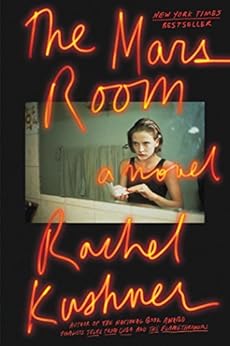I kept
coming across this title on lists of recommended reads and then found it on the
longlist for the 2018 Booker Prize, so I opted to read it though I’m not a fan
of Orange is the New Black or prison
novels in general.
Set in a
women’s correctional facility in central California, the book focuses on one of
the inmates, Romy Hall, who is serving two consecutive life sentences for
killing a man who stalked her. Through
flashbacks, we learn about her neglectful childhood, the sexual and physical
abuse she suffered, her job as a sex worker, and her drug addiction. We also meet some of her fellow inmates: a woman who killed her own child, a
wisecracking trans woman, a former panty hose model on death row. Two male characters receive some attention: Gordon Hauser, a teacher who takes an
interest in Romy, and Doc, a sociopathic “dirty cop”.
There is no
traditional plot. The book is a series
of vignettes which shift in focus and point of view to tell the stories of
various women: their early lives and
their lives in prison. The realities of
life in prison include punitive rules, inedible food, squabbles between
cliques, and unrelenting boredom.
Everyone engages in smuggling and manipulation to try and make life more
bearable.
The author
emphasizes that socioeconomic factors directly affect the probability of incarceration. Each of the women had limited options from
birth and almost all were victims of poverty, rape, abuse, and exploitation; Gordon
realizes that a person born in poor districts “might be trained from birth
practically to represent your block, your gang, to rep hard, to have pride, to be hard.
Maybe you had a lot of siblings to watch and possibly you knew almost
nobody who had finished school, or worked a stable job. People from your family were in prison, whole
swaths of your community, and it was part of life to eventually go there. So, you were born fucked.” Romy makes much the same point addressing
the reader directly: “You would not have
been wandering lost at midnight at age eleven.
You would have been safe and dry and asleep, at home with your mother
and your father who cared about you and had rules, curfews, expectations. Everything for you would have been
different. But if you were me, you would
have done what I did.” The women
committed crimes of violence but Gordon points out that “there were more
abstract forms [of violence], depriving people of jobs, safe housing, adequate
schools.”
Once
arrested, the women become victims of the justice system. Incompetent and overworked public defenders
fail them. In Romy’s case, for example,
the extenuating circumstances of her crime are never mentioned in court. Once in prison, they are provided counselors: “Counselor doesn’t mean someone who
counsels. Your prison counselor
determines your security classification and when and if you get mainlined to
general population. Your counselor keeps
tabs on you and reports to the parole board, if you are headed for parole.” Romy’s
counselor doesn’t help her find out what has happened to her son; instead, she
says “’Ms. Hall, I know it’s tough, but your situation is due one hundred
percent to choices you made and actions you took.’” What purpose does learning “excellent on-the
job training skills, which would translate into employment upon release” have when
a prisoner has no release date? And
serving long-term sentences seems useless, as Gordon observes: “Gordon could not see that making them suffer
lifelong would accrue to justice. It
added new harm to old.”
The book is
not really an enjoyable read. It tends
to be unfailingly bleak since the women had few choices early in their lives
and now have little hope. The disjointed
structure makes it difficult to connect with the characters though surely the
author wants the reader to do so since her point is that though their existence
is such that one may think of them as aliens on Mars, the women are very much
products of our world. The didactic tone
is also annoying; Gordon, for instance, often seems not much more than a
mouthpiece for the author.
The book is
a strong indictment of the American justice and penal systems and of society as
a whole. It is not, however, worthy of
the Booker Prize for fiction because it often reads more like a work of
non-fiction. Apparently, the author did
extensive research for the book and it shows, but I prefer my novels to be both
thought-provoking and entertaining.

No comments:
Post a Comment